- Home
- Patti Larsen
The Misery
The Misery Read online
The Misery
Kindle Edition
Patti Larsen
© 2015 Patti Larsen
Purely Paranormal Press
Find all of my books (there’s over 85 of them!) on Amazon!
***
Kindle Edition, License Notes
This ebook is licensed for your personal enjoyment only. This ebook may not be re-sold or given away to other people. If you would like to share this book with another person, please purchase an additional copy for each person. If you are reading this book and did not purchase it, or it was not purchased for your use only, then please return to Amazon.com and purchase your own copy. Thank you for respecting the hard work of this author.
***
It’s been so long since I stood here. The paint’s peeling from the front door, rust running from the busted lock, the clinging hinges. But I still feel the echo of the girl I was, the whispered voices of the ones I loved haunting the flagstone walk, the driveway, their faces lost in the dust over the picture window.
I could move on, forget my promise and go. Not like anyone would judge me for my choice, for turning away from what was, instead of focusing on the what is. Yeah, I could turn and walk under the old, swinging sneakers hanging from the line overhead in silent welcome, show this place my back for the last time. Probably should, considering. Like I said, it’s been so long and I’m tired. Haven’t I fought enough, done enough? There’s those who would say I’d seen the day come and go any kind of return might bring me peace, so why bother? Why come here, when the road calls me on from a past I can do nothing to change? I should go. Just go. Just…
Not yet, Abigail. Not yet.
I barely feel the stone under my feet turn to concrete steps as I climb in a body far heavier than it was a moment ago. The thick door creaks, groans, my shoulder against it, the house itself seeming to shake with my return. Hinges protest in whining voices as the rust gives way, the crumbling paint turning to dust under the pressure when I finally relent and ease through the slim opening I’ve managed to make. Barely a crack big enough for me, but I squeeze through anyway.
It’s wide enough to let a beam of light in once I’ve passed, morning sunshine catching the ballet of particulates I raise with my footfalls. I pause on the hall carpet, the crunch of its decaying fabric loud in the dull quiet. It may have been years since I stood here, since anyone passed through that old, wooden door, but I’ve made a habit of invading places like this. Enough that I lose the trepidation I’ve been feeling all morning, the leaden regret and nostalgia pulling at my sneakers, at my aching knees and protesting hips. At the flutter of my heart in my chest.
Just another job in just another decaying house. I can live with that.
Still, it’s not easy to turn, to look around with eyes unhindered by the past. I catch flickers of how things used to be while I fight with my need to turn and run, small, twitching waves of tension pattering through me as if to remind me I might think I’m strong, now. But wait, just wait. It’s going to get worse not too long from now.
Light glints on bits of glass, pulls me without my consent, through the hall and into the room beyond. Under the wooden archway thick with cobwebs and dust. They smile at me, the remains of who they were, in the frame over the fireplace. I can’t help but drift further into the living room, to stare up at the terrifying relic of that photo, the way the edges have curled in on themselves despite the metal rectangle holding it in place, the newly broken glass hanging in bitter shards from the edges. I was seven, I think, when the photographer told us to smile and snapped that photo.
She seems happy, my mom. Dad looks bored. Dustin, too, still in his angsty teenaged boy phase. Guess he never got to grow out of it, did he? Or his penchant for black clothes, for long, greasy hair and chewing his nails to the quick. I wonder if it lingers. Will I find him and his Goth ways intact?
Because I’m going to see him again, as soon as I get up the nerve to go to the kitchen. To cross to the door to the basement. And make my feet carry me underground.
The newly broken glass, clean around the edges, tells me everything I need to know about who lurks here, who still calls this place home. One of them was here, and recently, standing perhaps exactly where I stand. Shattered the dirty glass and exposed our already shriveling family to the light and the quiet. I hesitate, feeling my forehead crease, the now familiar pull of skin into furrows I’m sure will age me before my time. Like I care about that. Like anyone does, now.
Still, my sense of preservation asks the obvious question that tweaks my brows together and makes me pause: why? Why smash this old portrait, and why now? What could possibly have driven them—any of them—to take a fist or a weapon to ancient history?
I shake off my questions, shoulders aching as I look away. Pointless questions, useless. All they do is make me feel, and feeling anything is the last thing I want in this place, while I’ve come to do what I’ve come to do to those I used to love.
The basement beckons. It’s the only place they can be. Just like every other job, all the hunts that have come before this one, and all the ones that might come after. Might. This one could be the end of me, but she asked me, didn’t she? Long ago, when she was still a person, not a thing. Just before she turned.
A dog howls outside, close but not too close. Jake and his hulking mastiff, Bo, hunt different game than I do, looking for food to keep us going, any leftover supplies not picked through by previous scavengers. Giving me space, though I know my partner would rather be in here with me. The look in his eyes when I left this morning, leaving our campsite and heading on alone, that look was the same one I gave him the day we visited his house. He had the time he needed, I made sure of that. Was the one to keep Bo occupied, to do what I could to find us what we needed to survive while he did what he had to. Jake came out of his trip down memory lane gaunt and haunted, but alive.
I can only hope for the same.
We never talked about how it was for him to kill his family. No, not his family, not anymore. I knew better than to call them anything other than what they’ve become, but being here, it’s making me slip, pulling me, sucking me into the past and my old hurt. Agony dulled by time and training but never, ever leaving me no matter how much I tried to shed it. The truth helped, bludgeoning myself with the horror of what lay below. Blood sucking monsters that wore faces familiar, walked around in bodies I recognized. But the souls were missing, long gone when their hearts stopped beating the moment the Misery took them.
Vampire sounds so pathetic, so commonplace. So old Hollywood movie no one gives a damn about anymore. It was the term of choice, at first, seems to have stuck with some. I never use the word personally, though many do. Misery just fits better, defines for me the heartache and hurt tied to the end result. Because yes, of course, death sucks. No pun intended, the idea an insult bigger than the memory of what fiction used to tell us vampires were. But what’s left behind has nothing to do with death and everything to do with the deepest, darkest and most hurtful thing ever done to a living human being.
My throat works over a wad of tightening grief as I finally leave the family that was behind, feet scuffing across the hardwood floor. I catch the trim at the kitchen entry with my toe, curse a bit at the lack of attention I’m paying. This detachment does me no good. Puts me at risk. Even more so now, when I have to be sharp, prepared for anything. Prepared for what my heart will try to tell me while my mind fights to finish what I came here to do.
A deep breath helps, though the air is stale in the dark space, the door of the fridge hanging haphazardly to one side. Someone’s smashed the contents of the cupboards onto the shattered granite counter and the tile floor, long ago. No stench anymore, at least, no fetor of decay like there was when I started hunt
ing. When the lives of those taken by the Misery were still fresh enough to leave rot behind.
There were times I wished my uncle hadn’t come for me on my eighth birthday, that I’d succumbed to the disease like my family. But there were other times, when I trained with him and those immune, to end the suffering of the ones who rose from the fate Misery delivered. Those times I blessed him for my salvation.
Today? Today I just wish I didn’t have to stand in my old kitchen, staring at a limp, faded box of cereal crumpled in a corner, hearing the echoes of laughter in this place, the buzz of conversation, the screeching of my brother’s music. My mother’s laughter and the smell of her lasagna.
I wish I didn’t have a conscience. Or those I love who need putting to rest.
So few of us remain now, though the creep of Misery is over. No new cases, according to the resurrected news feeds we’ve been intercepting, not in over a year. Good tidings, maybe. I never thought I’d live to see the day. Uncle Ray surely didn’t. Not his fault, nor the team that he led, he chose to stay behind, to protect them from the wall of Misery who tried to kill his people. I still miss him. And hope he’s found his own peace while the rest of us struggle to understand where to go from here.
The basement door opens far easier than I expect, protected, I suppose, by being inside the house. Ten years of exposure to the elements has done a number on most places, but at least I have one less battle on my hands.
The stairs creak beneath my sneakers, the cool dark of the basement below. Fear, jarring and sudden, cracks me a near-knockout blow as I pause partway down. I have to seize myself firmly in my mental hands and give myself a solid shake to stay upright. Like Uncle Ray did, the first time I hunted, to keep me from emptying the precious food from my stomach and making myself a target for those I came to kill.
I’ve done this before. More times than I can count. No different now than before, no change in procedure. They are dead, the people below. Dead and gone. Only their Misery animated meat suits remain behind. This job, it’s not pleasant, but nor is it really killing. More like putting down furniture or an old TV past its time.
Except. Except they have faces, the miserable ones. Eyes. Names, some long forgotten, some fresh and almost imprinted on their newly turned skin.
I half spin, prepared to leave. Jake will do it for me, finish this, take on this task and let me walk away. I just have to ask. Knew it this morning, knew it all week while he followed me unbidden, knowing my destination. He’ll end this and spare me the act. If I ask him. I want to ask him, want to so badly my body burns with it, the skin under one eye twitching, my hands clenched into fists at my sides as my stomach heaves against the impending choice. To walk. Just walk away.
But thinking about burdening my friend with this stops my retreat before it can really even begin. Maybe when this is over we can talk about it, the two of us. Would Jake be willing, I wonder, to tell me his story if I tell him mine? He’s pretty stoic, has been since we met at the age of eight over a can of cold beans while the adults who rescued us raced us to safety. He’s the closest thing I have to family now, I need to keep that tucked away, tight to my chest and let it sustain me. Him and Bo and the few others left from Uncle Ray’s little rescue group.
I have no doubt my friend and partner in hunting has seen more than me, that Jake’s path to the back of my uncle’s old Suburban wasn’t as neat and tidy as my weeping mother handing me off, still dressed in my birthday dress, to the firm but shaking hands of her brother. It’s probably the reason he only trusts me, and Bo, of course. So he’ll talk, if I push him to. He’ll have notes to share, experiences to drink over, that vile stuff he calls booze enough to cut the pain when we do.
Okay then. Knowing I can unburden later, that gives me the courage now. At least, so I tell myself through the tightness of my throat and the cannon ball of darkness filling my gut with sour remorse, too early.
I haven’t killed them yet, after all.
I reach the bottom before I know I’ve decided for certain to follow through, waiting in the dark for my eyes to adjust. They covered the windows, showing that much intelligence and no surprise, considering. Their protective drive seems enough to keep them out of the sun, every last victim I’ve come across aware enough or driven by the disease to hide when the day comes. UV does a number on them, the only cure for Misery we’ve been able to find, if we catch the illness early enough. Though it leaves those who’ve tried to use it as a cleansing scarred and crippled for life. If you call that life. Still, I figure it’s better than the alternative. And the smoking, blackened, stinking remains the sun leaves behind if one of them gets caught in it.
I inhale, pause. So quiet down here, utterly silent. That surprised me the first few times I’d hunted with Uncle Ray, expecting to sense something, anything. There had to be a sound, a faint alert to the presence of those who hid here, a warning my ears and tense body could catch. But there’s no breath to draw, is there? No inhale of air to disturb the tomb, heartbeats or involuntary twitches to give them away. Nothing, just the darkness. Death and Misery. Silent partners in a suburban basement tomb of the damned.
I find him first, lying on an old couch, a heavy, black blanket pulled over his face. His shape seems awkward under the covering, as if someone threw him there and didn’t bother to arrange his limbs or make him comfortable. I recognize the furniture that cradles him, the one from the living room, dragged down here to cushion his body. My fingers twitch on the corner of the blanket before I jerk it aside and look down into his still, decaying face.
It hurts, more than I expected, to see him this way. My desperate brain seeks distraction, finds it in the thought I find it oddly disturbing. What need do the dead have for comfort, for a soft place to lie down during the day?
The attempt at diversion doesn’t last long, not when I fight to breathe through my open mouth and do my best not to allow the building scream tied to the center of my being fill the silence of the basement. My brother’s silent face is dull, lifeless. There’s just enough light I can see he wears little clothing now, torn away, decayed as the house upstairs decays. As his left cheek is melting away, without the living onset of anything as gross or weeping as gangrene. Just the dusty, powdering of flesh that looks more like the edges of the portrait upstairs.
The metal rod in my pocket slips easily into my fist, practiced, comforting to me as the sofa is to him. I have to stop looking, act. I can’t do this to myself any longer. He’s not my brother. He hasn’t been for ten years now.
I act before I can stop myself, the spike at the tip of my weapon severing the arteries to the brain, killing the connection the virus has to the rest of the body. Painless, I hope. I’ve been told time and again. A guess, at best, but all we hunters have to cling to. Surely they’re spared any final agony when we let them go. But even if they’re not… well. Pity pushes the point deeper.
His eyes don’t open at least, when I drive the length of metal behind his right ear, sparing me his waking in the last instant. It’s not always so clean and part of me wishes he would, that he’d look up at me and acknowledge me. See me, know I came to let him go in the end, like I promised her I would. It happens, has happened in the past. Freaked me out the first time, makes me sad every time after. They seem to know, the stronger ones, try to stir despite the fact day keeps them unconscious. It didn’t take long for the survivors to figure out the Misery were helpless when the sun came up. Or to take advantage of that weakness. Makes them easy to hunt, and hard at the same time. Not many of us can do it for long. Wears on the soul until we’re almost as miserable as they.
Dad’s next, standing in a cupboard, the door almost completely closed. The crack in the double doors is the sign I need. I’ve grown used to their hiding places, where the Misery likes to go to escape the sunlight. Worse than Dustin because my father looms over me, the happy go lucky dad I remember, except somewhere along the road he’s been fighting with other victims. Food’s been scarce for them, all
the blooded gone and hidden safe away, leaving them to starve. They’ve been turning on each other for meager sustenance. I’ve seen it happen, watched with Jake from a distance, Bo growling softly with his fur bristling, as groups of Misery converge in town squares and tear each other apart. Saving us the job.
But this is my dad and I’m not prepared for him, not even after Dustin. Because my brother’s damage is natural. My father’s isn’t. Half of his face is missing, bone and ligaments like cartoon drawings against the flap of skin left behind. Dry as dust and death.
No thinking, no reminisce, not now. Not ever again. The memory of his booming laughter dies with the last of the illness and he sighs when I let him go, sags forward. I ease him to the floor, crouch over him to check the deed is truly done. I’ve learned to be sure, to drive the point deep and clean. They are dead, yes. But there’s a particular collapse to them, to the remains of their skin and whatever animates them that releases when they are well and truly gone.
Tears burn the corners of my eyes as I hover there, making sure the man who was my father won’t rise again because I was sloppy or lazy or weak. Done, then, gone and lost forever. I cast around in sudden need, but there’s nothing to cover him with. Seems the decent thing to do, cover my father’s finally dead body.
Once we figured out how easy it was to kill them, that daylight meant our own salvation, organized parties gathered and hunted, wiping out thousands of Misery at a time. I never knew what was worse, those early days as a hunter, nine, ten, eleven years old. No one was spared the job, save the very young and the very old. I learned to kill in silence, mercy release over and over of those who didn’t fight back. Or the long, terrifying nights we holed up and waited for the ones we missed to go back to sleep at dawn.
Fangs. Blood. Eyes filled with madness and nothing else. I’ll never forget them for as long as I live.
I stand, hands shaking all over again. Two down. One to go. The hardest of them all. I have to search for her, really dig deep. She’s wedged herself behind boxes of old Christmas decorations and the inflatable pool we didn’t get a chance to put up that summer. My final birthday present her shelter from the day. I stare at her, at her perfection and fight off my heart’s sudden pounding.

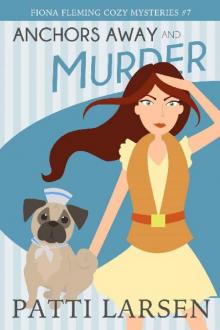 Anchors Away and Murder
Anchors Away and Murder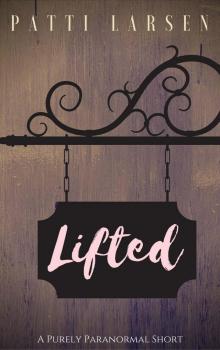 Lifted
Lifted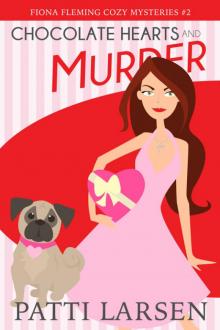 Chocolate Hearts and Murder
Chocolate Hearts and Murder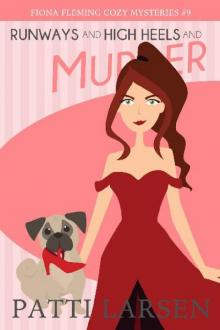 Runways and High Heels and Murder
Runways and High Heels and Murder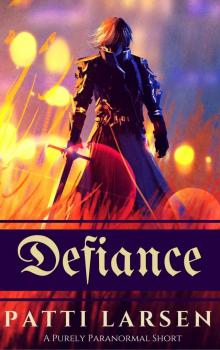 Defiance
Defiance Evolution
Evolution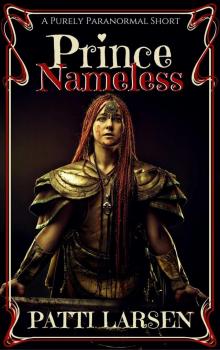 Prince Nameless
Prince Nameless Ropes and Trees and Murder
Ropes and Trees and Murder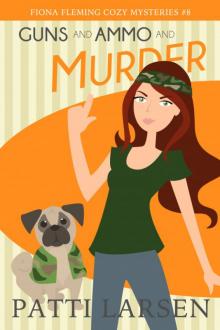 Guns and Ammo and Murder
Guns and Ammo and Murder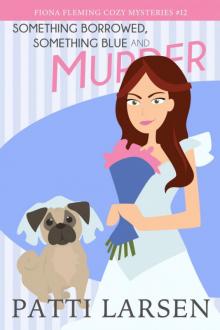 Something Borrowed, Something Blue and Murder
Something Borrowed, Something Blue and Murder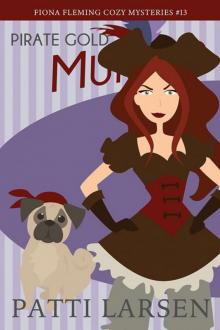 Pirate Gold and Murder
Pirate Gold and Murder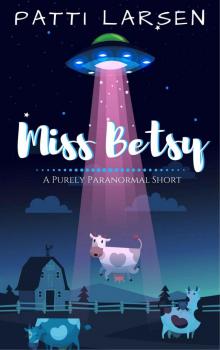 Miss Betsy
Miss Betsy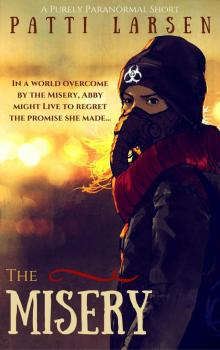 The Misery
The Misery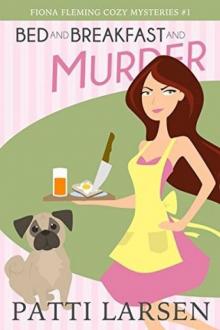 Bed and Breakfast and Murder
Bed and Breakfast and Murder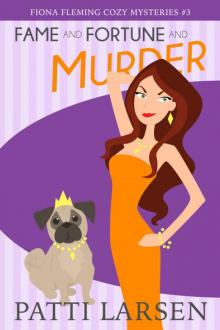 Fame and Fortune and Murder
Fame and Fortune and Murder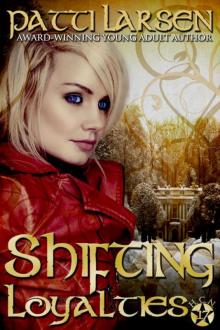 Shifting Loyalties
Shifting Loyalties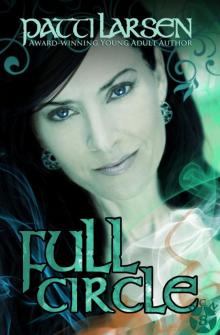 Full Circle
Full Circle Flesh and Blood
Flesh and Blood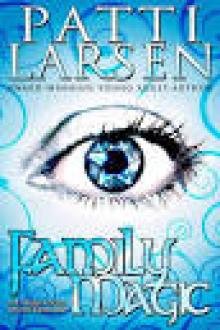 Family Magic
Family Magic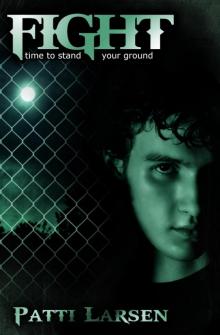 Fight (Book Three, the Hunted)
Fight (Book Three, the Hunted)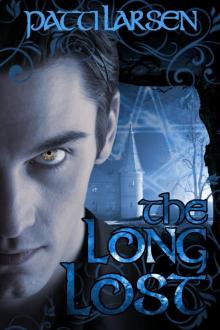 The Long Lost
The Long Lost Plaid and Fore! and Murder
Plaid and Fore! and Murder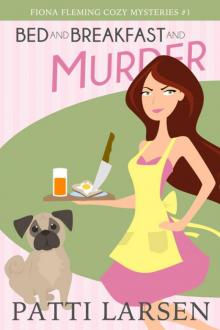 Bed and Breakfast and Murder (Fiona Fleming Cozy Mysteries Book 1)
Bed and Breakfast and Murder (Fiona Fleming Cozy Mysteries Book 1)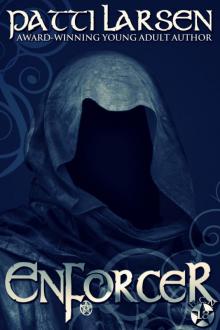 Enforcer
Enforcer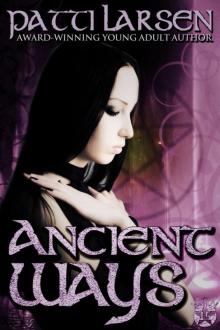 Ancient Ways
Ancient Ways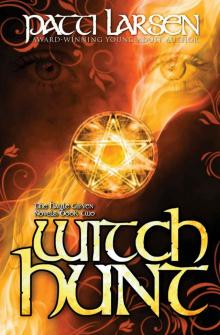 Witch Hunt (The Hayle Coven Novels: Book Two)
Witch Hunt (The Hayle Coven Novels: Book Two) The Undying
The Undying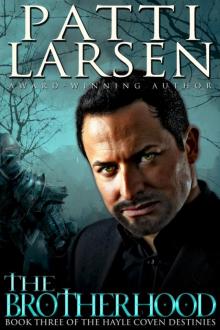 The Brotherhood
The Brotherhood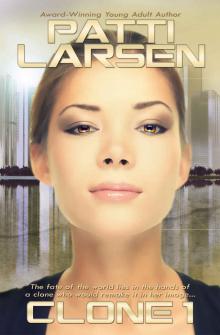 Clone One
Clone One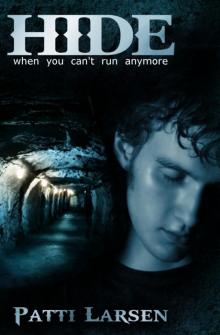 Hide (Book Two, the Hunted)
Hide (Book Two, the Hunted)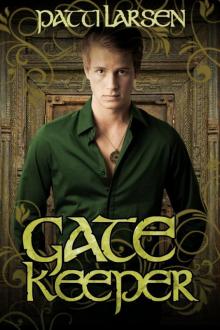 Gatekeeper
Gatekeeper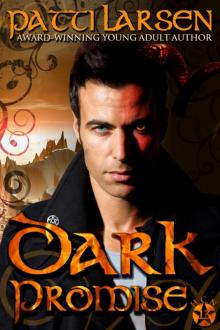 Dark Promise
Dark Promise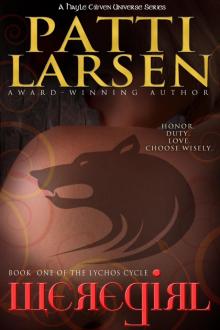 Weregirl
Weregirl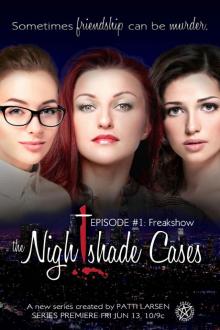 Freak Show (Episode One: The Nightshade Cases)
Freak Show (Episode One: The Nightshade Cases)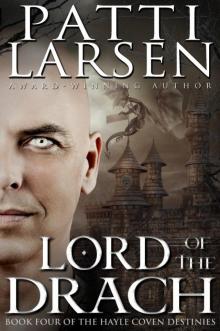 Lord of the Drach
Lord of the Drach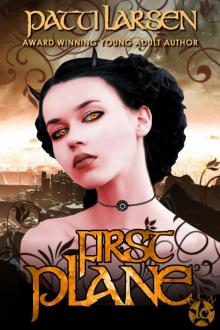 First Plane
First Plane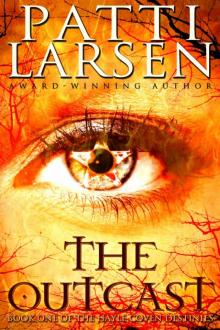 The Outcast
The Outcast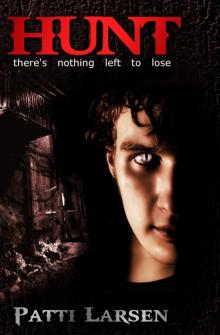 Hunt (Book Four the Hunted)
Hunt (Book Four the Hunted)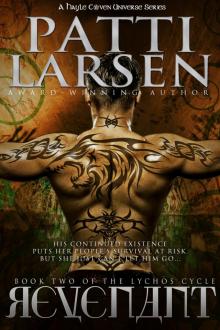 Revenant
Revenant Demon Child
Demon Child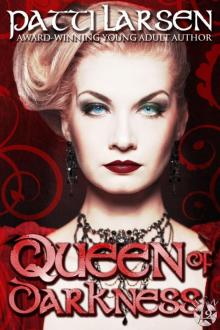 Queen of Darkness
Queen of Darkness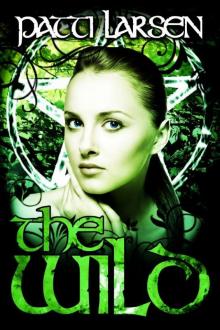 The Wild (Book Four The Hayle Coven Novels)
The Wild (Book Four The Hayle Coven Novels)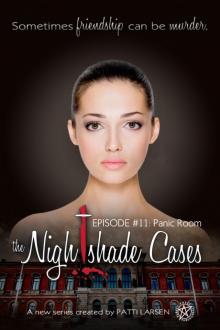 Panic Room
Panic Room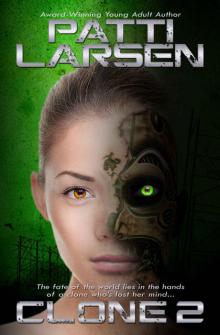 Clone Two
Clone Two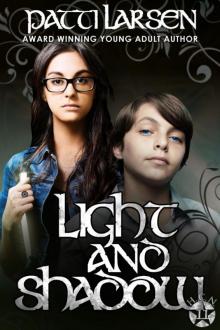 Light and Shadow
Light and Shadow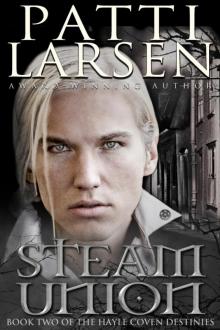 Steam Union
Steam Union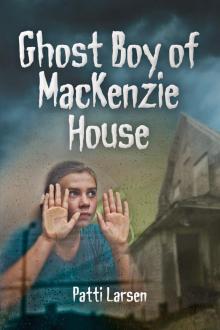 Ghost Boy of Mackenzie House
Ghost Boy of Mackenzie House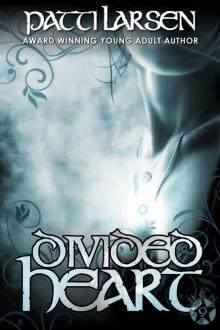 Divided Heart
Divided Heart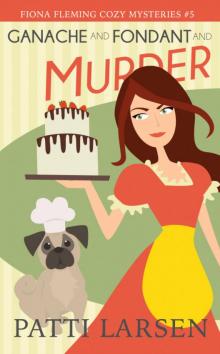 Ganache and Fondant and Murder
Ganache and Fondant and Murder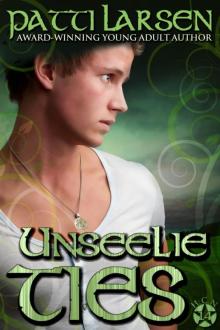 Unseelie Ties
Unseelie Ties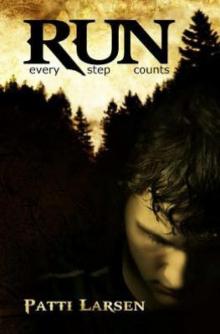 Run (The Hunted)
Run (The Hunted)